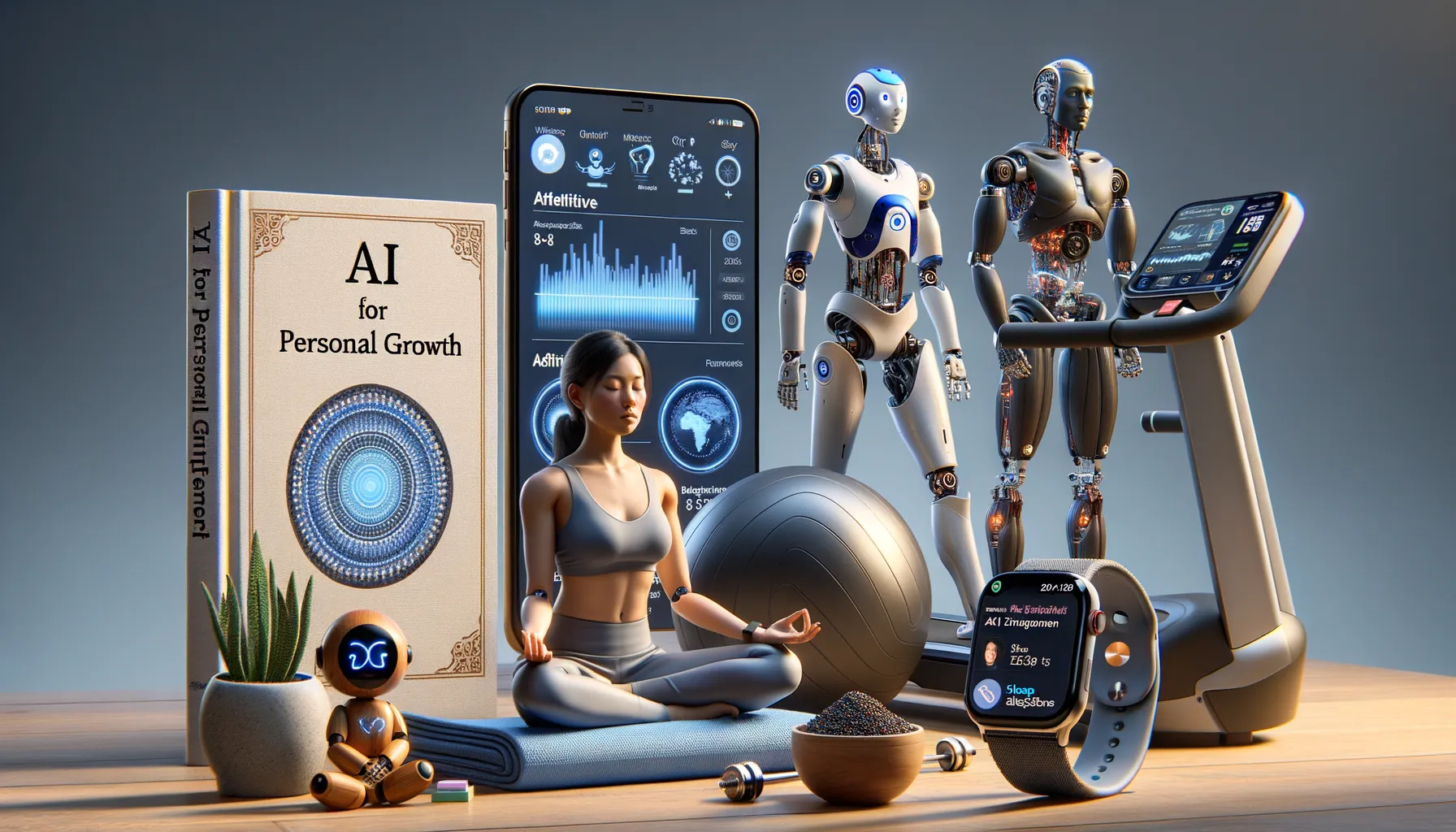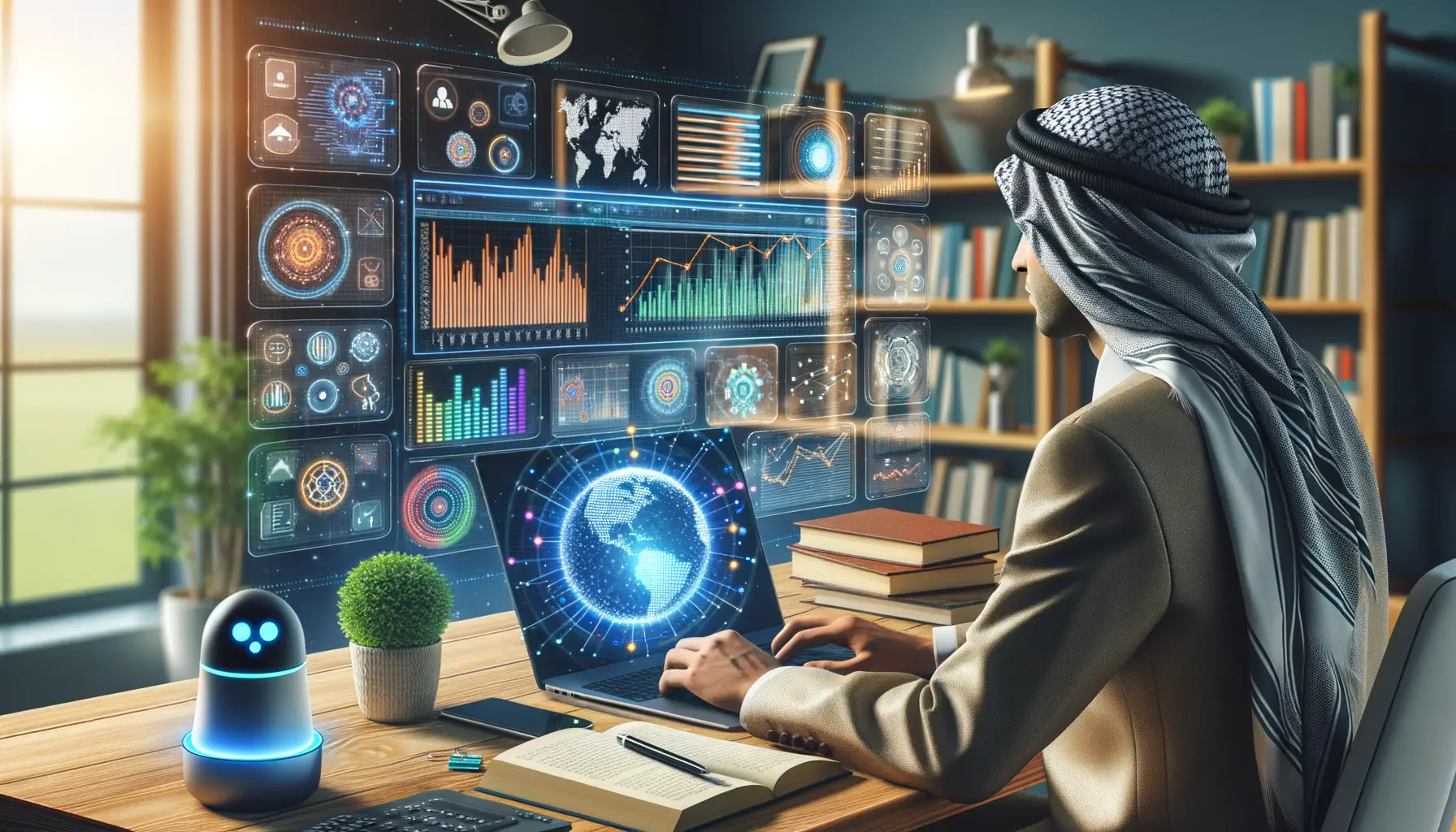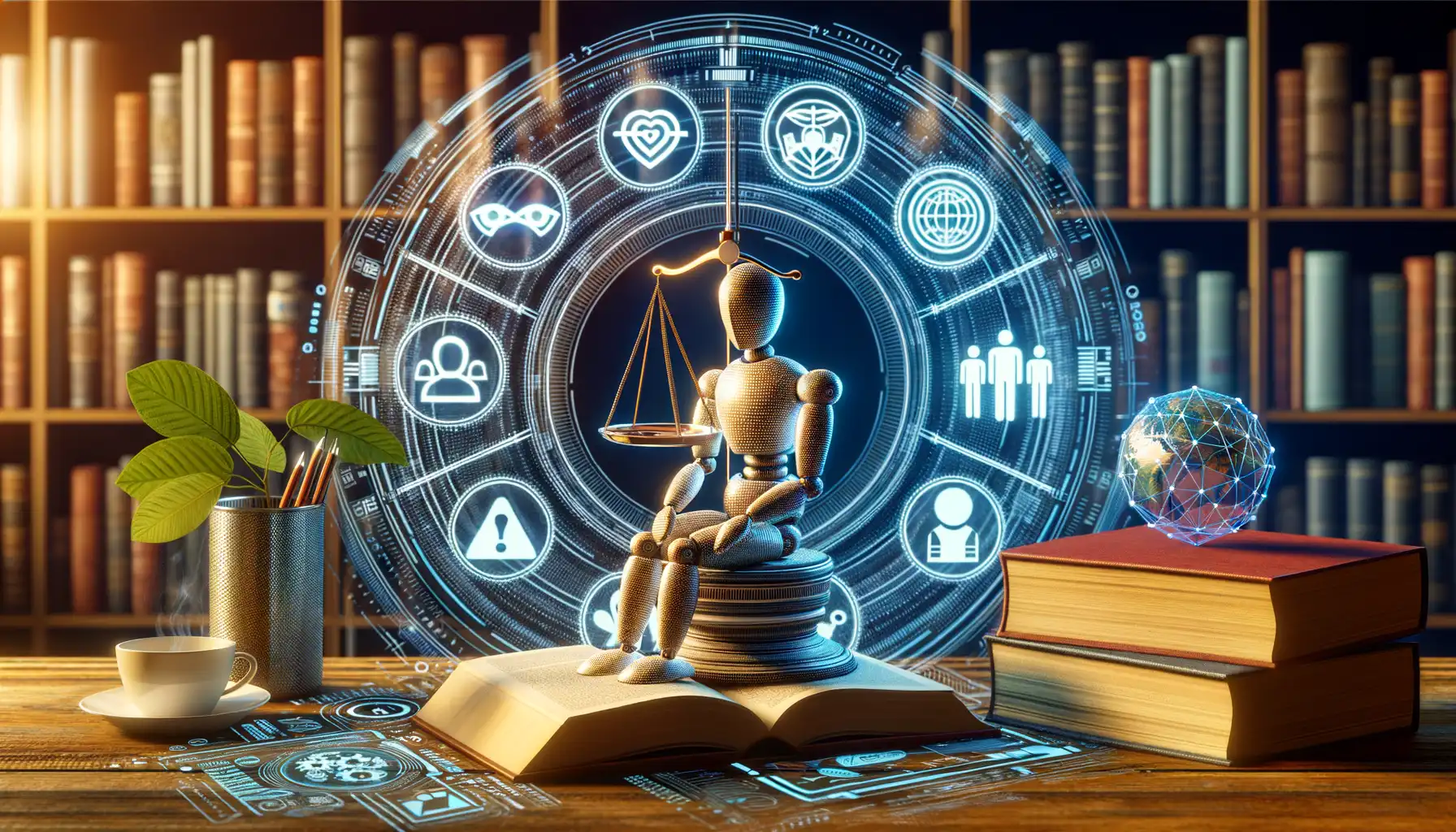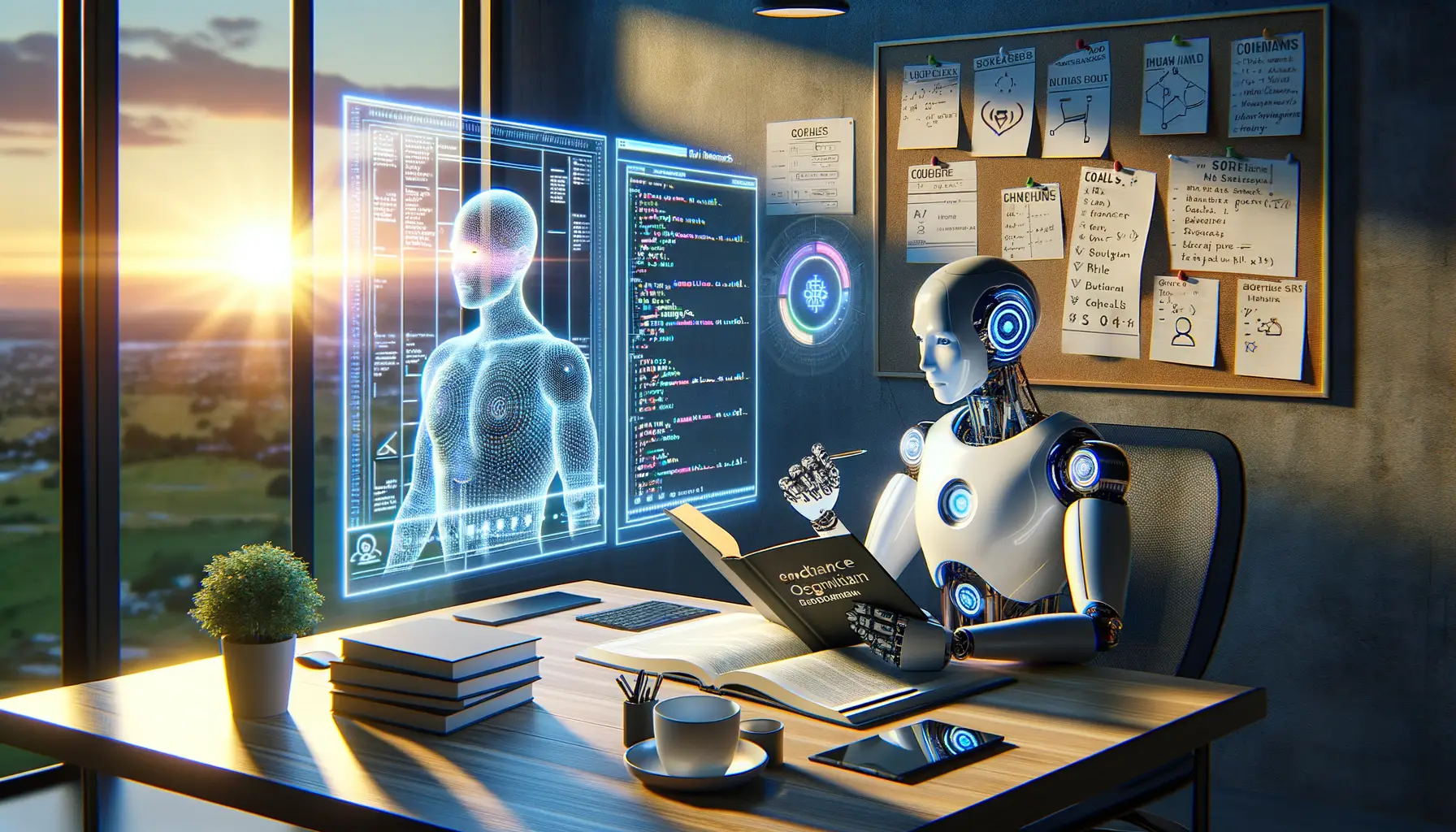Understanding How AI Impacts Personal Growth
How AI Can Spark Your Journey to Self-Discovery
Imagine having a wise, ever-evolving mentor at your side—one who knows your quirks, strengths, and even your blind spots. That’s exactly what AI technology can bring into your personal growth journey. It’s like having a life coach in your pocket, blending data-driven insights with an uncanny knack for understanding what makes you tick.
Think about that moment when you discover a habit you need to break or an untapped passion waiting to bloom. AI doesn’t just help you see it—it nudges you toward action in subtle, personalized ways. For instance, apps powered by machine learning algorithms can analyze patterns in your daily routines and suggest micro-adjustments: “Hey, you tend to feel unmotivated after lunch. How about a quick 5-minute meditation?”
- Track progress you might have missed in your whirlwind days.
- Offer tailored suggestions based on your goals and lifestyle.
- Encourage consistency, turning trial-and-error into steady growth.
With AI, self-improvement feels less like climbing a mountain and more like walking a winding, scenic trail—both challenging and endlessly rewarding.
Uncovering Strengths You Didn’t Know You Had
Ever felt like you’re not reaching your full potential but aren’t sure where to start? AI isn’t just about algorithms; it’s about revealing hidden layers of yourself. Through tools like personality quizzes, goal-setting platforms, or even natural language processing systems, AI analyzes nuances in your behavior—helping you connect the dots in impactful ways.
Picture this: an app notices how often you write about teamwork in your gratitude journal and highlights collaboration as one of your core strengths. Or perhaps it detects that you thrive when given structured challenges, suggesting you set clear deadlines for personal projects. These aren’t cookie-cutter solutions; they’re insights drawn from your unique footprints in the digital world.
It’s like having a mirror that reflects back your best qualities but also challenges you to embrace areas that need growth. With AI guidance, your evolution becomes intentional, not accidental.
Applications of AI in Self-Improvement

Transforming Daily Habits with AI
Imagine having a personal mentor, coach, or accountability partner available 24/7—this is what AI brings to the table when it comes to self-improvement. From helping you break bad habits to building new positive routines, AI-powered tools are revolutionizing how we handle self-growth.
For example, apps like Habitica gamify your daily tasks, turning mundane to-dos into exciting challenges. Forget sticky notes and forgotten planners—AI keeps track of your progress, sends gentle nudges when you’re slacking, and even rewards you for a job well done. It’s like having a cheerleader in your pocket, minus the pom-poms.
But it doesn’t stop there. AI can:
- Analyze your sleep patterns with smart devices like Oura Ring, giving specific recommendations for better rest.
- Customize fitness plans through apps like Fitbod, which adapt your workouts in real-time based on your goals or performance.
- Guide meditation sessions using tools like Calm or Headspace, offering AI-curated mindfulness techniques tailored just for you.
Thanks to these tools, fostering a better you becomes less intimidating and more intuitive.
Mastering Emotional Resilience Through AI
Self-improvement isn’t just about achieving goals; it’s also about navigating emotions. Enter AI-driven emotional intelligence. Virtual platforms like Woebot blend psychology expertise with cutting-edge AI to help you process thoughts and feelings with clarity.
For instance, imagine having those moments when everything feels overwhelming. Instead of spiraling, you could open an app that notices patterns in your language—like frustration hints or burnout red flags—and offers constructive strategies to manage them. Need a mood boost? AI can recommend uplifting playlists or prompts for gratitude journaling that make your heart feel lighter.
In short, AI isn’t just a tool—it’s a bridge between who you are today and the person you aspire to become.
Benefits of AI-Powered Tools for Personal Development

Why AI Tools Feel Like a Personal Coach in Your Pocket
Imagine having a dedicated coach who never sleeps, always listens, and tailors advice just for you. That’s what AI-powered tools are bringing to personal development. They analyze your habits, track your progress, and provide actionable suggestions—all without judgment or exhaustion.
Say you’re trying to build a morning routine but keep hitting snooze. An AI app could detect patterns in your behavior, suggest incremental wake-up times, and even cheer you on with small rewards when you succeed. It’s like having a supportive friend who also happens to know a ton about behavioral psychology.
- Personalized strategies: Whether you want to practice mindfulness or learn a new skill, AI can cut through the noise and offer what works best for you.
- Data-driven insights: By analyzing your daily choices, AI tools reveal trends you might miss on your own—showing where tiny changes could spark big results.
Breaking Down Barriers to Growth
For many, personal growth feels daunting. But let’s be real: we often overthink it. The beauty of AI? It makes the overwhelming feel manageable. Take journaling, for instance—some tools analyze emotions in your writing, offering clarity that even long reflection sessions might miss.
AI doesn’t just guide you; it grows with you. Your digital coach adjusts as your goals evolve, ensuring your self-improvement journey is as dynamic as you are. It’s the magic of technology meeting the raw human desire for betterment!
Ethical Considerations and Challenges of Using AI

When AI Walks the Fine Line of Morality
Imagine handing over pieces of your personal growth journey—your fears, aspirations, and vulnerabilities—to an invisible digital coach. Sounds convenient, right? But here’s where the waters get murky: Are we sacrificing a slice of our autonomy or risking undue influence? While AI tools can help us navigate life’s complexities, they also bring their own web of ethical dilemmas.
Take privacy, for example. That meditation app that learns your emotional ups and downs? It might also be collecting data you didn’t consciously agree to share. Or what about bias? AI reflects the data it’s fed, which means systemic biases could sneak into your most intimate self-improvement advice.
- Data transparency: How much do you know about what these tools know about you?
- Dependency concerns: Are we losing the ability to make decisions without AI nudging us?
In short, while AI offers exciting ways to grow, it’s crucial to ask if it’s helping you thrive—or subtly steering the ship of your self-worth in directions you didn’t chart yourself.
Future of AI in Enhancing Self-Improvement

AI as Your Personal Growth Partner
Imagine having a personal coach who never sleeps, constantly learns, and tailors advice perfectly to your quirks. That’s the future of AI in self-improvement—an ever-evolving, always-available mentor! Whether you’re looking to crush procrastination or master a new skill, AI is set to revolutionize the way we grow.
Picture this: an app that tracks your moods, gently nudging you towards positivity by suggesting activities based on what *actually* makes you smile. Or, how about a virtual assistant that analyzes your productivity patterns, pinpointing when you’re a creative powerhouse and when you’re running on empty? AI won’t just help—it’ll adapt, whispering insights into your ear like a wise old friend.
- AI-powered journaling tools, steering your thoughts towards clarity and intention.
- Custom wellness trackers that evolve as your goals shift over time.
- Even VR simulations where you can rehearse that nerve-wracking job interview!
Redefining Self-Reflection with Technology
Self-improvement isn’t just about action; it’s also about understanding ourselves. AI’s future lies in decoding the complexity of human behavior. Imagine algorithms that study your speech patterns and offer insights into your communication style or emotional intelligence.
For example, platforms like Woebot already provide AI-driven mental health support—but future tools may dive deeper, helping you uncover long-lost motivations or hidden strengths you never knew existed. It’s like holding up a mirror that reflects not just your face, but your innermost potential.
